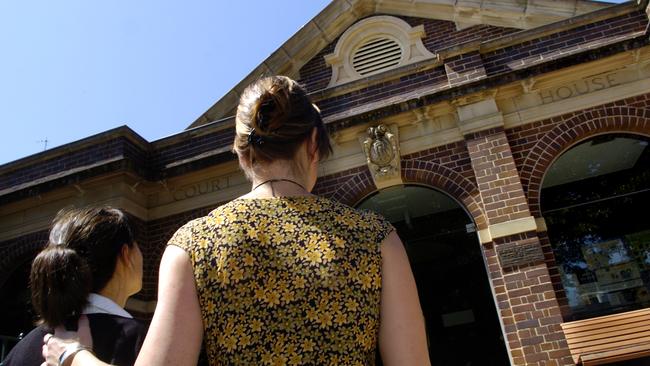Townsville sex offender jailed indefinitely
A 20-year-old violent sexual offender who attempted to rape three women before he turned 18 will remain in jail indefinitely.

A 20-year-old violent sexual offender who attempted to rape three women before he turned 18 will remain in jail indefinitely, after a Queensland Supreme Court judge declared him a “serious danger to the community”.
Pais Wanman Penningson randomly targeted three women in separate attacks in his home town of Townsville, northern Queensland, while aged just 16 and 17 in 2012 and 2013.
In one of the attacks, which occurred in front of his victim’s nine-year-old daughter after he broke into their home, Penningson held a knife to her throat while attempting to rape her. Chillingly, he told a prison psychiatrist that, had he not been interrupted, he would have “slit the woman’s throat”.
Now aged 20, Penningson, who has been behind bars since his arrest in the wake of his third attack at the age of 17, became eligible for release at the conclusion of his jail sentence in May.
However, Queensland Attorney-General Yvette D’Ath approved an application to the Supreme Court to keep him in jail indefinitely, citing serious concerns for community safety should he be released.
After a hearing in Brisbane in June, Justice Martin Burns agreed he posed a serious risk of reoffending.
Three independent psychiatrists agreed the risk of recidivist offending was almost certain.
One gave evidence that, in his opinion, such an offence was likely to occur within hours of Penningson’s release.
“Psychiatric opinions offered in evidence are to the effect that any future sexually violent offending will likely be perpetrated against adult females at a time when Mr Penningson is intoxicated and, if that occurs, there is a significant risk of a high degree of harm to the victims. The use of weapons is likely,” Justice Burns said in his ruling.
“I am therefore satisfied Mr Penningson is a serious danger to the community.”
The three psychiatrists agreed the 20-year-old was on the path to becoming a serious sexual offender, after he eschewed all treatment programs offered during his three-year prison term and was regularly involved in violent fights with fellow inmates.
Penningson has been in custody since 2013, when he was aged 17, after attempting to rape three women he randomly targeted.
The court heard that in November 2012 he accosted a 27-year-old female jogger in a suburban street about 7pm, forcing her against a fence and attempting to rape her before he was interrupted by her husband, who she had called for help.
Later the same night, he broke into a 32-year-old woman’s house not far from the scene of his first crime.
After arming himself with a knife from the woman’s kitchen, he held it to her throat in front of her nine-year-old daughter and said, “You’re going to have sex with me.”
The woman managed to grab the knife, which snapped off in her hand, and Penningson fled the scene, before police arrived.
Just five months later, he held a knife to the throat of a sex worker while in her car, before robbing her and fleeing.
He was arrested by police hiding nearby a short time later.
One of the three psychiatrists who gave evidence said not only was Penningson highly likely to reoffend upon his release, but his sexual crimes were likely to increase in violence.
Justice Burns said there was sufficient concern for the safety of the community to make the unusual order of indefinite detention.
“Mr Penningson currently presents as a moderate to high risk of reoffending in a sexually violent way. That risk has not been reduced or modified in any way whilst he has been in custody because, of course, Mr Penningson has refused to participate in the treatment options that have been offered to him,” Justice Burns said.
“As well, whilst in custody he has continued his abuse of illicit substances and exhibited a number of concerning behavioural issues on several occasions. He is difficult to handle and refuses to be treated.”
Penningson will remain in jail for at least another two years, ostensibly to undergo psychological treatment.
Justice Burns’ ruling is due to be reviewed in 2018.
